With almost two decades of experience spanning various levels of the education sector, I’ve seen significant changes throughout my journey. I’ve observed how, in the name of modernization, we risk losing sight of the true essence of African education. By “African education,” I mean an approach grounded in our local culture, identity, and values—one that integrates discipline, character, and sustainable ideas, while aiming to make us global champions by blending local intelligence with international relevance. This is what I call indigenous innovation: generating and teaching local ideas, content, and intelligence for global impact.
In the race for prestige and innovation, many schools in Africa prioritize flashy advancements and global recognition, often at the expense of the true essence of learning. Education is not about surface-level gloss; it’s about fostering growth, engagement, and lifelong learning that can be sustained over time. As we strive to meet international standards, one critical question often goes unasked: Are we losing sight of what truly matters—the students, teachers, and communities they serve?
Albert Einstein once wisely stated, “Education is not the learning of facts, but the training of the mind to think.” Schools that focus too heavily on external prestige risk building castles in the sand—impressive in appearance but unsustainable in substance. The late Nelson Mandela understood that education holds the power to transform the world. But as we chase global recognition, we must ask ourselves: Is this pursuit truly changing the world, or are we sacrificing long-term impact for short-term recognition?
Now is the time to reimagine how we invest in learning, returning to the foundational principles that foster growth, creativity, and authenticity. We must invest in programs that reflect the socio-cultural contexts of our students and prepare them for the future, ensuring that our education system is not just about meeting global standards but about creating meaningful, lasting local changes. Join me as I help reimagine Africa’s approach to schooling.
Many schools hire expensive international consultants or pursue foreign accreditations and curricula without considering local needs and goals. This can lead to unnecessary costs, such as high faculty salaries and staff training, without improving the quality of education. It risks undermining the value of local teachers, who are essential for fostering meaningful learning and community connections. The pursuit of external recognition should not overshadow the importance of practical pedagogy, strong local ties, and real-world outcomes for sustainable growth.
Investing heavily in marketing, recruitment, and overexpansion, at the cost of improving quality and long-term sustainability, also weakens the educational foundation. Investments in advertising, energy-intensive facilities, and unproven EdTech solutions can overshadow efforts to enhance teaching standards and academic outcomes. Neglecting energy efficiency and long-term maintenance costs, while rushing into rapid expansion without assessing demand, can jeopardize an institution’s financial stability. Long-term success requires a balanced approach that prioritizes both innovation and infrastructure, while also investing in teacher training, sustainable growth, and sound financial planning.
The road to true excellence is not defined by flashy trends or external recognition, but by thoughtful, intentional choices that prioritize lasting impact. While the quest for prestige is natural, we must be cautious not to trade depth for surface-level accolades. When we focus solely on international rankings and modern infrastructure, we risk losing sight of the real purpose—equipping students with the skills, critical thinking, and cultural awareness needed to contribute meaningfully to their communities.
Imagine a tree: While it may look impressive with its tall, lush canopy, it is the roots that keep it strong and stable. We must prioritize a strong foundation rooted in practical, culturally relevant learning. This means embracing modernization, not just in technology and infrastructure, but in pedagogy that reflects the unique socio-cultural contexts of the students. By doing so, we will not only produce graduates who excel in global trends but also those who can tackle local challenges with wisdom and resilience.
A shift is needed. Rather than chasing accolades or mimicking foreign models, we must ask ourselves: How are we preparing the leaders of tomorrow? Are we nurturing critical thinking, a deep understanding of our heritage, and the adaptability required to thrive in a rapidly changing world? The true measure of our success should not be the height of the buildings or the shine of new technology, but the depth of impact on the minds and hearts of students.
The future of our education lies not in mere prestige but in creating empowered, thoughtful individuals capable of transforming the world. Schooling should focus on more than just reflecting trends—it should aim to foster lasting local change. By grounding modernization in real, local, sustainable impact, our schools can unlock the future they envision.
Let’s reimagine the path to excellence, where every choice is guided by the long-term impact on the minds that will shape tomorrow. The real question is: Are we ready to build not just schools, but legacies? Join me in this campaign as I help reimagine Africa’s approach to schooling.
.
__________________ Oluwatosin Osemeobo is a passionate lifelong learner, writer, sustainability advocate, and educator with over 15 years of experience in teaching and a strong background in education. He holds a Bachelor of Education from Obafemi Awolowo University (OAU) and a Nigeria Certificate in Education from the College of Education, Zuba. His academic achievements include certifications in Inclusive Leadership from the Open University, UK, and Sustainable Diet from the United Nations Climate Change (UNCC) programme. Additionally, he has earned prestigious certifications from the University of Cambridge in areas such as the UN Convention on Child Rights, Trade Rules, Sustainable Development, and Law, among others. Tosin designs and leads initiatives that use schools as a catalyst for sustainable development and teacher wellbeing. He is the President and Convener of When TEACHERS Pray, a global virtual platform dedicated to the spiritual wellbeing of school communities. Through his writing, advocacy, and community engagement, he empowers schools worldwide to adopt sustainable practices, fostering a future that is socially just, equitable, and environmentally conscious. He is currently living and working with a School in Abuja, Nigeria. Email: tosemeobo@gmail.com Phone: +234 806 561 1550




















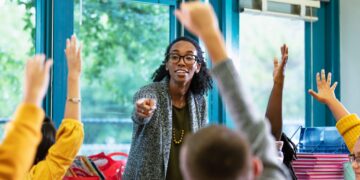

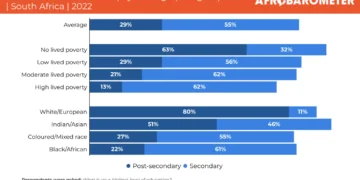

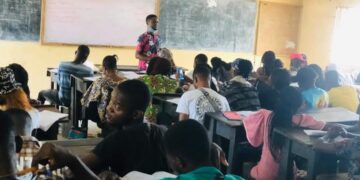
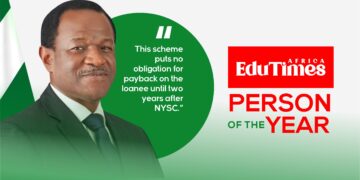










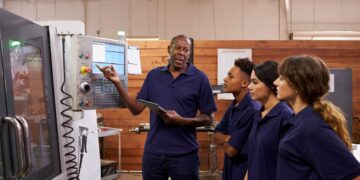






















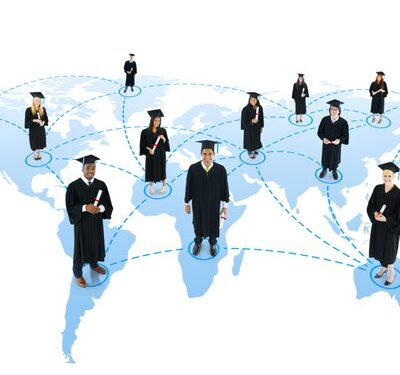


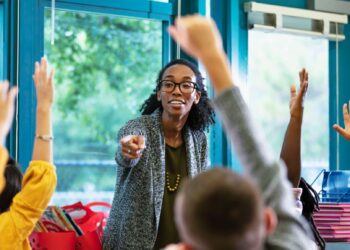

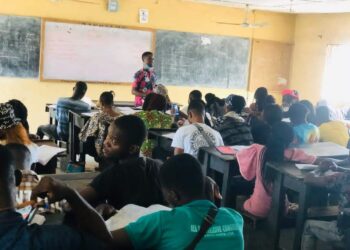
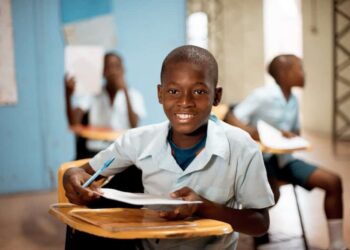

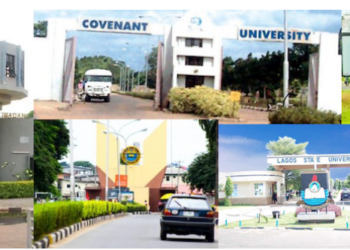
 EduTimes Africa, a product of Education Times Africa, is a magazine publication that aims to lend its support to close the yawning gap in Africa's educational development.
EduTimes Africa, a product of Education Times Africa, is a magazine publication that aims to lend its support to close the yawning gap in Africa's educational development.

